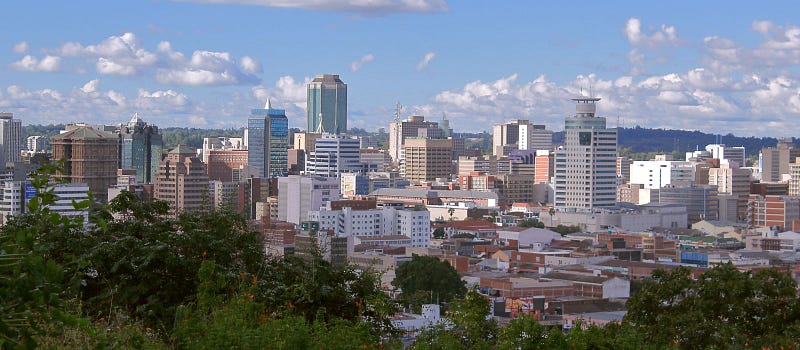
From Where I Sit is an ongoing column associated with the ESOL program that aims to share the stories and experiences of international students.
I come from Zimbabwe, a country often classified by economic hardship and hyperinflation. Located in the Southern part of Africa, it is home to nearly 15 million people. Although slow to be affected, Zimbabwe has not escaped the clutch of the pandemic devastating the globe. As of April 2020 there have been 40 recorded cases and 4 deaths due to the coronavirus. The main difficulties faced by Zimbabweans have not necessarily been with the virus itself but the brutal, but necessary, lockdown enforced on the people in March.

Billy Geach ’23 is an international student from Harare, Zimbabwe. In this article, he writes about the implications of COVID-19 on developing countries. Photo courtesy of Billy Geach ’23
The lockdown. How are people meant to survive? They need to work to earn money to buy their daily meals but are not allowed to. There is no concept of saving money because there is never any money to save. There is no fall back for these people. However, the medical facilities in Zimbabwe are not built to cope with a global pandemic making it extremely important to try and reduce the number of cases by enforcing the lockdown. The government has been faced by decisions in which there can be no right answer to the coronavirus question.
The coronavirus impacts the lives of the entire global community, but it is especially dangerous to the poorest parts of the population. It has been predicted that the corona virus will hit the developing countries hardest because they do not have the economic stability and resources to recover from the devastation caused by the virus. In Zimbabwe, nearly three quarters of the population live below the poverty line, surviving on less than two dollars a day. Making the consequences catastrophic, often leading to life or death decisions on an everyday basis.
The coronavirus forces the questions of what it means to be human on us. In the toughest situations, the remarkable capacity of humanity shines through shedding light on the possibilities of the overlooked and underappreciated as we find new ways to make a difference and new ways to make a difference to the people we care about.
The amazing thing about Zimbabweans is that they always will find a way to survive. People work together and often are able to produce some form of sustenance to continue surviving. Every available piece of land is used for growing vegetables. Through adversity we bind together as a nation. Troubling times tend to build our brotherhood. The simplest acts of kindness carry an incredible amount of value that can never be underrated. The people of Zimbabwe who seem to have nothing will always find ways to help and to make a difference to their community.
















